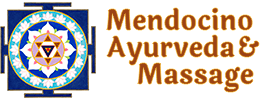Doshas
Make an Appointment
 Vata Dosha
Vata Dosha
Vata is made up of space and air. Its primary qualities are light, dry, cold, subtle, thin, small, always moving, clear and rough. Vata governs all biological movement, and it governs the expression of feelings and thoughts and nerve impulses. Rules respiration, circulation and heart function. Due to the air element, people with predominately Vata dosha tend to be slender, have prominent joints with delicate skin that tends towards dryness. They are quick and lively and quick to change. When Vata is balanced, creativity and enthusiasm are the hallmarks of these exuberant folks.
Factors that can aggravate Vata and cause issues are; irregular routine, consumption of too many dry, cold or rough foods (too many big salads, popcorn, crackers, and raw foods) ice cold beverages, excessive travel, exposure to cold winds and high altitudes and mental overexertion.
Signs you may need to balance your Vata

Tired, but find it difficult to slow down

Anxious, worried and overwhelmed

Difficulty falling asleep

Feeling fearful

Tremors

Irregular digestion - issues with flatulence

Constipation

Dry skin and hair

Dry sensations in throat

Cold hands and feet
Vata Subdoshas
Prana vata is present in head & brain. Associated with sensory perception, thoughts, learning new information and inhalation. It is connected to higher cerebral functioning. Its movement is downward.
Udana vata is located in the throat and diaphragm. It’s energy moves upward and is responsible for exhalation. Udana governs speech and expression.
Samana Vata is located in the stomach and small intestines. This vata is responsible for stimulation of digestive juices and enzymes and moves in a linear side-to-ide movement.
Apana Vata is located in lower part of the pelvic cavity and the colon. It governs menstruation and the elimination of wastes. Its movement is downward. This is the seat of vata overall.
Vyana Vata is related to circulatory system from the heart. Vyana Vata moves through out the whole body. It is responsible for reflex actions and micro circulation.
